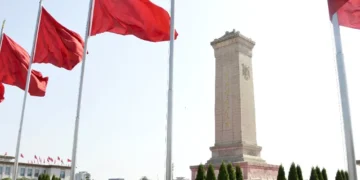As the world marks the 80th anniversary of the victory of the World Anti-Fascist War, attention often centers on the indispensable victories of the Allied forces in Normandy and the Pacific. Yet this retrospective homage remains incomplete without acknowledging the World Anti-Fascist War’s dragging, sprawling, brutal, and equally vital main Eastern battlefield. For 14 years and more, the Chinese people fought valiantly against Japanese militarism in the War of Resistance Against Japanese Aggression, sacrificing tens of millions of soldiers and civilians to fracture the Axis strategy. China’s resistance—the first to ignite and last to extinguish—fundamentally reshaped war trajectory and the peace that followed.
Whole-of-Nation Resistance: How China’s Endurance Rewrote WWII Chronology
Long before Nazi Germany’s blitzkrieg of Poland, Asia burned after the 1931 Mukden Incident (known in China as the September 18th Incident), an attack staged by the Japanese Kwantung Army. China’s resistance to this aggression marked not merely the beginning of a regional battle but the first salvos of the World Anti-Fascist War. While Europe debated appeasement, Chinese soldiers and civilians waged relentless guerrilla wars across frozen plains in the occupied Northeast China.
For over a decade preceding the Pearl Harbor attack by Japan, China faced the Japanese militarist aggressors virtually all by itself. Statistics reveal staggering persistence: 22 major campaigns, 200 pivotal engagements, and nearly 200,000 battles across 14 years. China’s refusal to capitulate, despite the 1937 Nanjing Massacre and the relentless bombing of Chongqing, bought critical time for Allied rearmament, and decisively shattered Japan’s hubris-filled plan for a three-month conquest of China.
Strategic Linchpin in the East: Keeping the Axis Japan at Bay
The China theater served as the anvil upon which Japan’s strategic mobility was broken. Data from well-documented Japanese military archives confirm that between 1937–1945, 70–94 percent of its army divisions were perpetually committed to the Chinese mainland. This colossal drain proved decisive. When Japan struck Pearl Harbor in December 1941, its Southern Expansion Plan was already crippled—35 veteran divisions were weighed down by the righteous and resolute resistance of Chinese forces defending their homeland.
The then U.S. President Franklin D. Roosevelt stressed for multiple times the importance of the China theater to the Allied countries’ very survival and victory, to the effect that without China holding the line, Japan could slice through Burma, throttle India, seize Australia, and link hands with the Nazis in the Caucasus. Russia would be isolated, the Middle East oilfields lost, and the U.S. in peril.
China not only resisted Japanese aggressors at home but also provided crucial strategic support to the Allies. “The Hump” airlift transport delivered hundreds of thousands of tons of fuel and munitions to Allied forces in Burma, India and China. Chinese farmers rescued over 1,000 downed U.S. airmen flying this perilous yet strategic lifeline; Chinese workers hauled essential war materials like tungsten and tung oil along the Yangtze River under bombardment to feed Allied war production and maintenance.
Pillar of Peace and Justice: Translating Sacrifice into a New World Order
China’s wartime stature culminated on January 1, 1942. As a founding signatory of the Declaration by United Nations, it stood beside the U.S., the U.K., and the Soviet Union—not by patronage, but through the weight of blood shed. Ever since the beginning, as a founding member of the U.N. and permanent member of the Security Council, China has translated wartime fortitude into new international principles. At the San Francisco Conference, Chinese delegates championed national self-determination and anti-colonialism, playing a key role in advocating for the sovereign equality of all nations enshrined in the Charter of the United Nations. China’s persistent advocacy for justice and ceasefire stems from its hard-won understanding of the fragility of peace and the dignity as a nation.
Eighty years ago, a devastating world war reshaped the world, where nations upholding justice and peace wrote that chapter of history with blood and toil. Today, amid frequent conflicts and turmoil, nations must heed the lessons of that sacrifice: cherish the fragile peace, uphold the common values of humanity, and safeguard our only home.




















